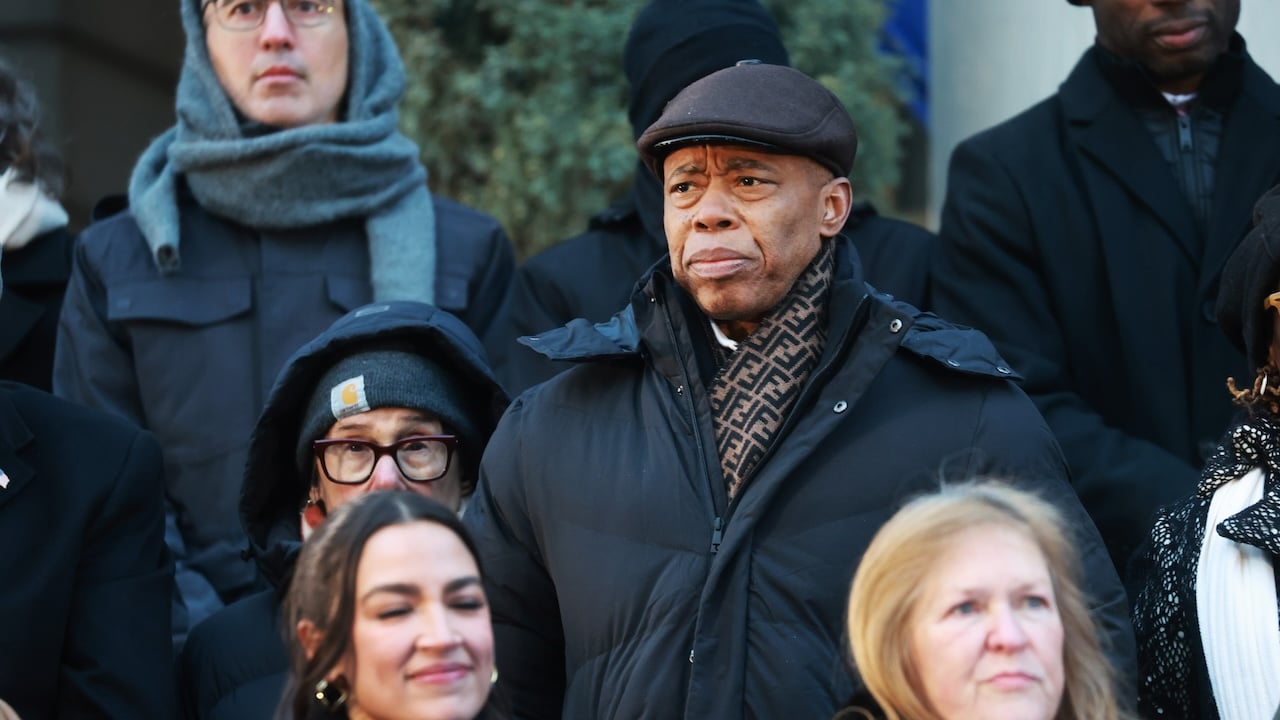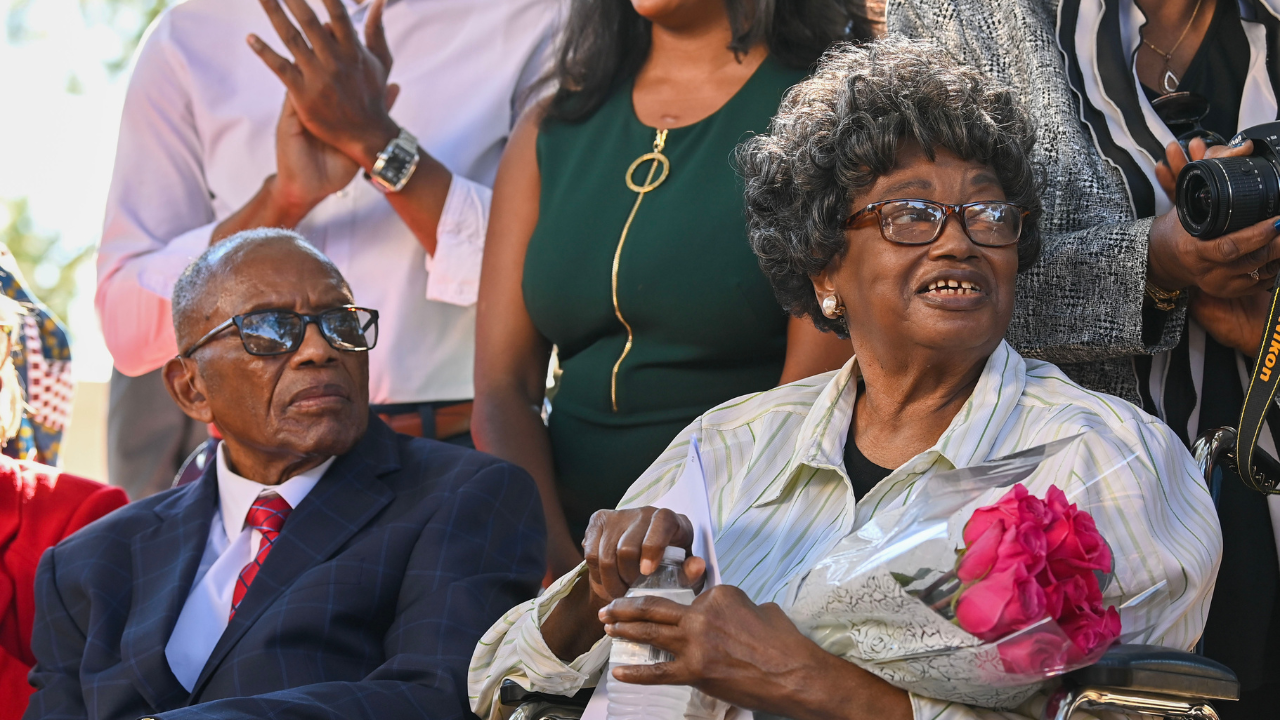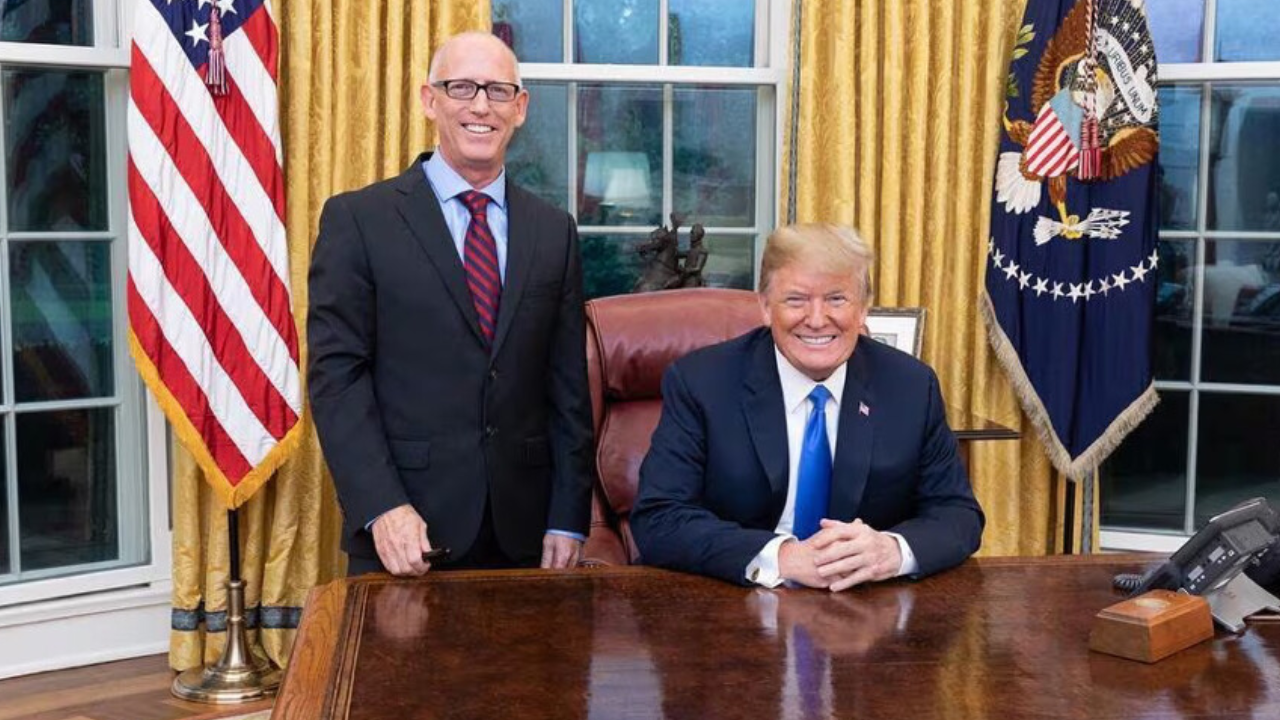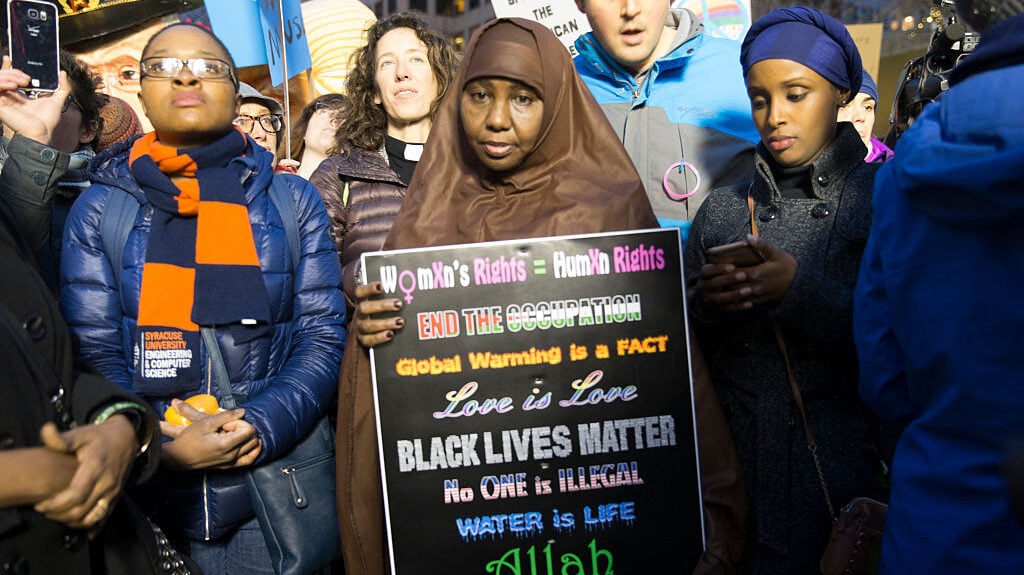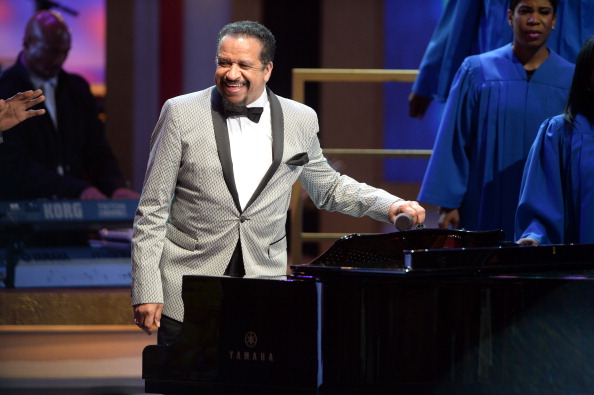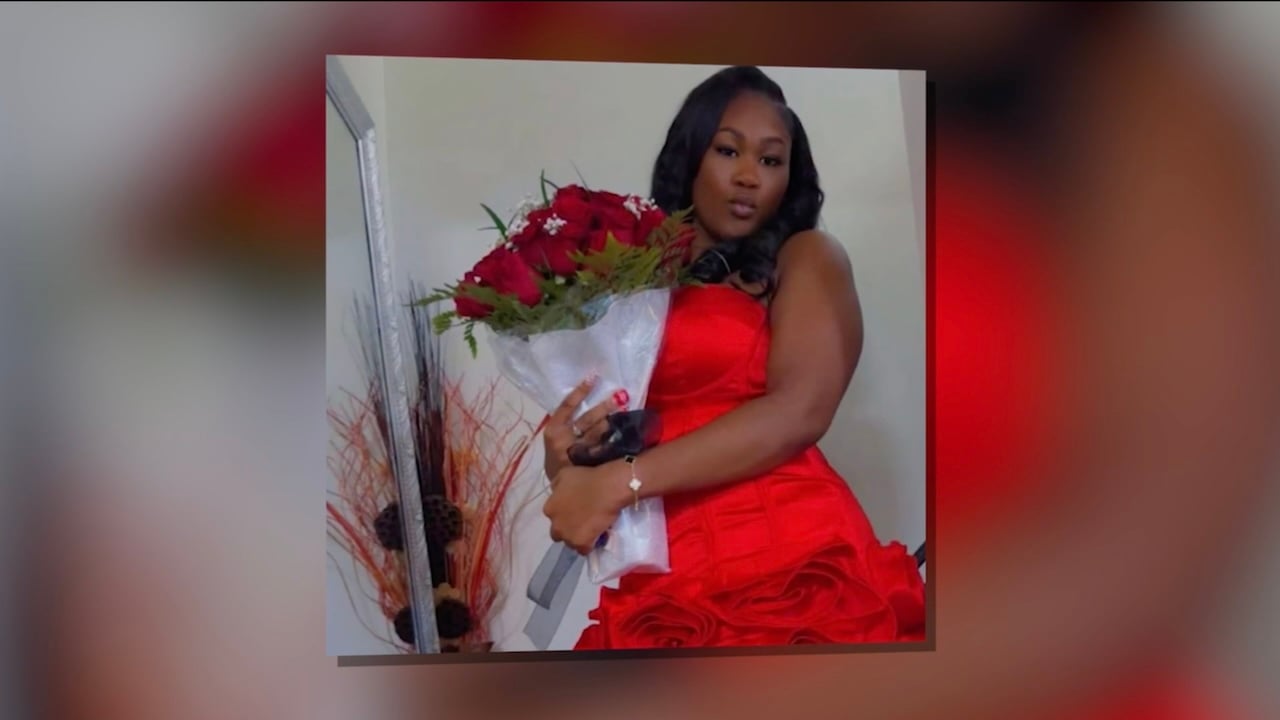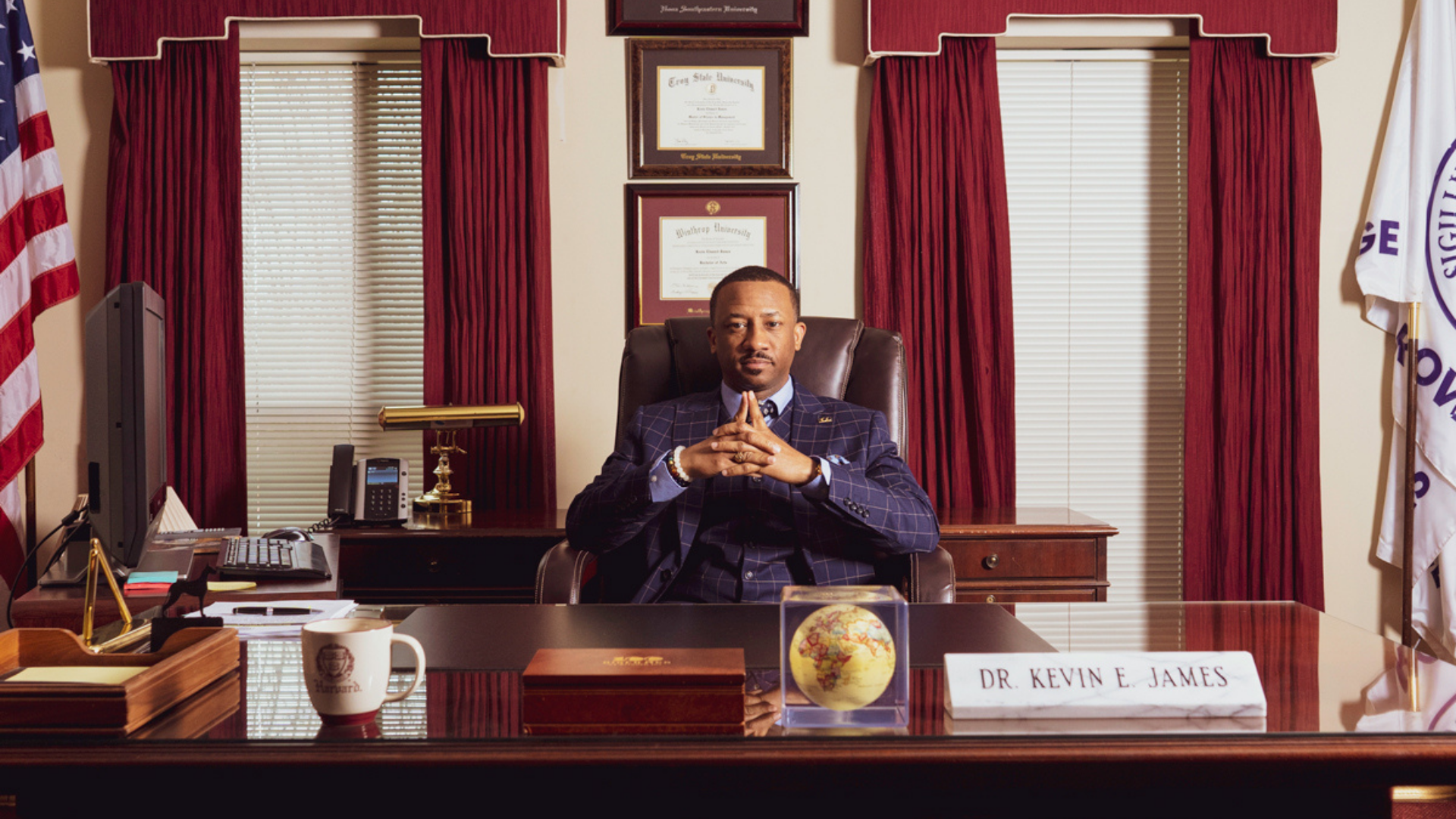The Freedom To Be Weird: What D’Angelo Taught Black Men About Liberation


Sometimes you take absence for granted. Not because you don’t miss the person, but because you know that they’ll be back. While D’Angelo’s presence was never constant, it was still a fixture, and that makes his loss feel so odd.
When the news broke last week that D’Angelo had passed, it hit like the opening chords to his track from “Black Messiah,” “Really Love.” Low, rumbling, unsettling. The kind of grief that cascades. Not quite as a shock that just makes you shudder, but as a slowly rising cloud that makes you reflect. Not just on the man or his music, but on what he represented. Because D’Angelo wasn’t just a musician. He was a mood. A vibration. A whole permission slip for Black men to be strange, spiritual, sensual, and self-contained all at once.
He didn’t talk publicly much. Didn’t post. Didn’t perform for us on demand. And, in a world where every artist is expected to drop a deluxe edition, a podcast, and a skincare line in the same fiscal quarter, D’Angelo’s enigmatic silence was integral to his value.
He was so legendarily elusive that it became one of the most hilarious subplots in the series “Atlanta.”
He gave us only three albums in thirty years: “Brown Sugar” (1995), “Voodoo” (2000), and “Black Messiah” (2014). But those records are dense, deliberate, almost gravitational in their pull. The man was weird. And that’s the point.
Because weird, for a Black man, is a radical act of freedom.
From the jump, D’Angelo exuded a type of cool that existed somewhere between the corner store and the cosmos. Part streetwise philosopher, part barefoot mystic. He could sing about weed (“Brown Sugar”) and faith (“Devil’s Pie”) with the same conviction, like both were just different forms of testimony.
He was quiet but not shy. Reclusive but not detached. His eyes always looked like they’d seen too much and thought about even more.
And maybe that’s what made his particular brand of cool so magnetic; he didn’t try. There was no rollout, no rebrand, no genre-hopping attempt to prove he was still relevant. D’Angelo didn’t chase culture; he embodied one of his own.
He was the kind of artist who made the world bend toward his tempo, and then had the nerve to walk offstage knowing that we all wanted more.
But it’s that refusal to overexpose/overproduce himself that made him so singular. Because, truth be told, we’re in an era where even our art feels ultra-processed. Every drop is planned. Every song is a strategy. Every artist is a content creator. D’Angelo was none of that. He was a vessel, not a brand. A man who could vanish for fourteen years and still make the world pause in excitement the moment a whisper of new music surfaced.
That’s not just artistry. That’s self-possession.
But, let’s be honest: D’Angelo was weird. That’s not an insult. It’s a compliment.
Weird means he didn’t play by the rules. Weird means he owned and trusted his instincts. Weird means he was willing to sound unusual, to go left, to be vulnerable. Weird means he didn’t have to explain himself.
And in a culture where Black men are often taught to move in straight lines, to be decisive, to be strong, to never waver, D’Angelo’s weirdness was an invitation. To curve, to question, to wander.
He’d take five years to tune a snare. He’d scrap entire albums because they didn’t feel full enough. He’d cancel shows, disappear from public view, gain weight, lose weight, reemerge with a guitar and a 10-piece band playing covers that could dwarf the source material.
And through all that, you could still feel him searching, not for perfection, but for alignment.
There’s a difference between being lost and being in process. And Black men are rarely allowed the latter.
We either have to perform interpretive stoicism like it’s strength or overcompensate with exaggerated bravado just to survive. But D’Angelo’s eccentricity, his refusal to conform to the rhythm of our expectations, was liberation in slow motion. He was proof that being deliberately self-aware, even to the point of confusion, is its own form of peace.
Weirdness, for D’Angelo, wasn’t a costume. It was a compass.
When you look at D’Angelo’s catalog, three albums across three decades, it reads less like underachievement and more like mastery. “Brown Sugar” was the introduction: a honeyed, confident debut that put soul back in conversation with hip-hop. “Voodoo” was the revelation: raw, messy, alive, dripping with sweat and intention. And “Black Messiah” was the sermon: urgent, political, imperfect in the best way. The street, the bedroom, and the sanctuary, in that order.
That’s not inconsistency. That’s deliberation.
D’Angelo was a deliberate and purposeful man in an impatient and vapid world. Every note, every rest, every year of silence was part of the same composition.
And that deliberation is something for Black men to ruminate on.
Because the truth is, we’re rarely encouraged to ponder ourselves. We’re told to act, to hustle, to grind, to survive. Reflection is treated as indulgence. Stillness as laziness.
But what if thinking deeply about who we are is the most radical thing we can do? What if pausing to make sure we mean what we say, and live how we feel, is how we find elusive growth?
D’Angelo didn’t give us much, but what he did give us was considered. He didn’t release filler tracks or cash-grab features. He didn’t chase streams or the algorithm. He made what he believed in when he was ready.
That’s not arrogance. That’s integrity.
And in a world where men equate their worth with their productivity, D’Angelo showed us that slowing down, even stepping back, can be the highest form of self-respect.
There’s a special kind of genius that lives in contradiction. And D’Angelo lived there comfortably.
He cared deeply about the music, but seemed to care very little about the machine that delivered it. You could tell he knew exactly what his art meant to people, but that knowledge was an afterthought that prevented him from being seduced into overexposure.
That tension, between detachment and devotion, is the essence of his cool. Because you could tell he did care. He cared enough to make it right. To make it honest. To make it timeless.
And that kind of patience drives audiences bonkers. We want the art now. We want the next project, the next evolution. But D’Angelo taught us that patience is the price of authentic creativity. Weird takes time.
We didn’t get a new D’Angelo every few years. We got D’Angelo, period.
And in that consistency, he became a compass for a generation of artists and fans, reminding us that you don’t have to evolve beyond your essence to remain relevant. You just have to live in alignment with where you are in the moment and it’ll all fall into place.
One of the reasons D’Angelo resonates so deeply with Black men is because he presented a type of cool that could only come from a kind of internal freedom that many of us are still chasing.
He was sensual but not exploitive. Vulnerable but not fragile. Spiritual but not sanctimonious. He was balanced in a way that felt deeply human.
His weirdness, his deliberate self-containment, was a rebellion against normative typing. We had to create new genre boxes to try to put him in.
He wasn’t trying to be palatable. He wasn’t trying to be radical. He just was.
And maybe that’s the lesson: liberation doesn’t always look like defiance. Sometimes it looks like stillness. Sometimes it looks like being so deeply in tune with yourself that nothing else matters.
We talk a lot about what D’Angelo gave us, but his absence gave us something too.
It taught us how to wait. How to respect the process. How to live with anticipation instead of anxiety.
For fourteen years between “Voodoo” and “Black Messiah,” we speculated, we worried, we joked. Every random rumor: “The album’s called James River!” “He’s working with Questlove again!” “He’s recording in Virginia!” felt like a wish in progress.
But when the music finally arrived, it was worth it. Because “Black Messiah” didn’t sound like a comeback. It sounded like continuity. As if he’d been quietly building the whole time, far from the noise, unbothered by our impatience.
There’s something holy in that.
In his restraint, D’Angelo modeled a kind of faith, faith in the work, faith in the wait, faith in himself.
And that’s something Black artists rarely get. They’re often forced to perform urgency: “move or lose.” They don’t get a time to mature or develop.
But, for him, his career was development defined.
Part of what made D’Angelo magnetic was that you could feel he was among us, but not of us. He was cut from the same cloth; church kid, Southern roots, grown in the lineage of Marvin, Curtis, and Sly, but the tailoring was different.
He felt like someone who could walk into a room full of chaos and immediately make it calm. Someone who didn’t need to prove he belonged because belonging wasn’t the point.
That’s a kind of energy we all recognize. That unintentional aura of difference. The vibe of someone who seems to be playing a different game entirely. Good weird.
Black men need that vibe. We need to reclaim the permission to not belong, to exist outside of other people’s categories, timelines, or aesthetics.
Because society won’t ever fully accept our difference until we accept it first.
That doesn’t mean isolation. It means patience with yourself. It means self-acceptance without performance. It means recognizing that your strangeness isn’t a flaw, it’s evidence that you’re still listening to yourself in a world that won’t stop shouting.
When you step back and look at D’Angelo’s life, it reads like scripture for the misunderstood.
He battled addiction. He struggled with fame. He retreated from the spotlight, only to reemerge when his spirit was ready. But even through all that, we never got a D’Angelo that wasn’t D’Angelo.
There was no corporate version. No “radio-ready” compromise. No ghostwritten half-measures. Every time he appeared, whether onstage at Brooklyn Bowl or behind a Fender Rhodes at the Verzuz with Red and Meth, it felt authentic.
Because that’s the thing about weirdness: it can’t be faked. You can imitate style, but you can’t replicate essence.
And that’s what made him timeless.
He was a different kind of cool. The kind that wasn’t selling you a lifestyle, just inviting you into a frequency. It’s something you can’t emulate, just bask in.
That kind of cool is both frustrating and fulfilling. You wanted more, but you also understood the scarcity was part of the magic.
And that’s what weirdness is; an understanding that creation is not performance, it’s existential not exhibitionist. That sometimes the best thing you can do for your art, and for yourself, is to keep it to yourself until you’ve got it just right.
Maybe the ultimate lesson D’Angelo leaves behind is this: freedom is not the absence of struggle; it’s the ability to struggle on your own terms.
That might just be the hardest freedom to claim. Too often, we’re expected to be either invincible or broken. There’s no room for “becoming” or “growing.” No allowance for weirdness, hesitation, iteration, or experimentation.
But D’Angelo’s whole existence was a treatise on becoming. He gave himself time to think, to evolve, to fail, to start over. He let the world move on without him; and somehow, when he came back, we were all still waiting.
That’s the kind of grace we deserve to give ourselves.
So yes, D’Angelo was weird. But maybe weird is just another word for whole.
And maybe that’s what true freedom looks like for Black men; not in dominance, not in defiance, but in deliberation. In deliberately and purposefully choosing your rhythm. In walking away when you need to. In returning when you’re ready. In being unexplainably, unapologetically yourself.
You belong to the universe now, Brother D.
You taught us that to be weird is to be free, and to be free is to finally belong to yourself.
Corey Richardson is originally from Newport News, Va., and currently lives in Chicago, Ill. Ad guy by trade, Dad guy in life, and grilled meat enthusiast, Corey spends his time crafting words, cheering on beleaguered Washington DC sports franchises, and yelling obscenities at himself on golf courses. As the founder of The Instigation Department, you can follow him on Substack to keep up with his work.
SEE ALSO:
What's Your Reaction?
 Like
0
Like
0
 Dislike
0
Dislike
0
 Love
0
Love
0
 Funny
0
Funny
0
 Angry
0
Angry
0
 Sad
0
Sad
0
 Wow
0
Wow
0




